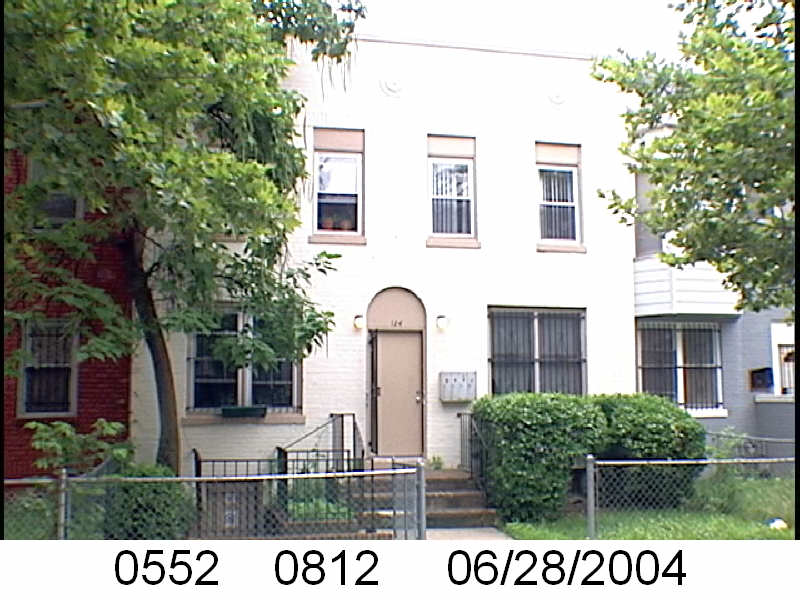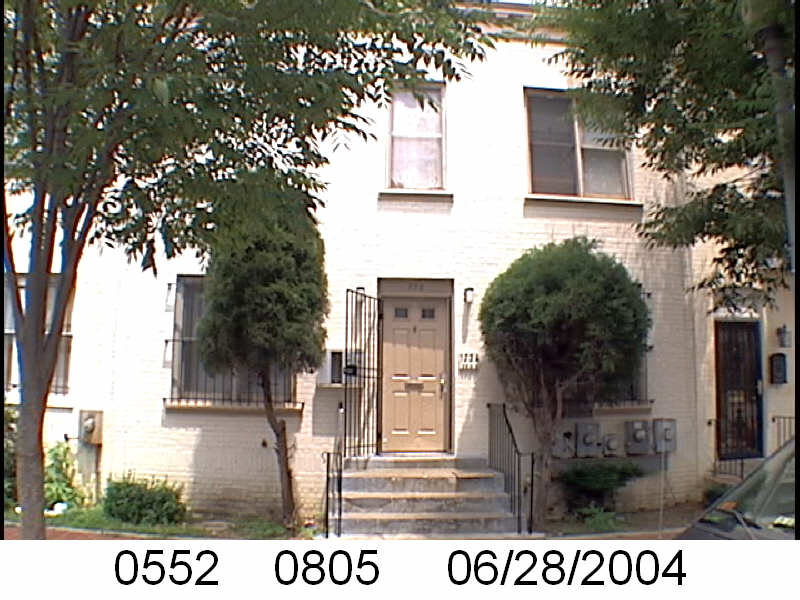The Washington Sanitary Improvement Company (WSIC) was a late 19th century charitable capitalism experiment that ended in the 1950s. This blog started looking at the homes that were supposed to be sold to African American home buyers, after decades of mainly renting to white tenants.
Looking at WSIC properties they tend to have a pattern where the properties were sold to a three business partners, Nathaniel J. Taube, Nathan Levin and James B. Evans as the Colonial Investment Co. for $3 million dollars. Those partners sold to African American buyers. There was usually a foreclosure. Then the property wound up in the hands of George Basiliko and or the DC Redevelopment Land Agency (RLA). Then there were the odd lucky ones who managed to avoid that fate.
I should note this property is both lots 812 and 213.
Let’s see what happens with 124 Q St NW:
- March 1951 (recorded April 1951) Evans, Levin and Taube sold one-fourth of 124 Q NW to Leon and Minnie Broadus.
- March 1951 (recorded April 1951) Mr. and Mrs. Broadus borrowed $4,200 from Colonial Investment Co. favorite trustees Abraham H. Levin and Robert G. Weightman.
- March 1951 Evans, Levin, and Taube sold the one-fourth of 124 Q St NW to Miss. Elizabeth Williams.
- March 1951 Williams borrowed $4,250 from trustees Abraham H. Levin and Robert G. Weightman.
- March 1951 Evans, Levin, and Taube sold the one-fourth of 124 Q St NW to George M. and Shirley A. Yates.
- March 1951 the Yates borrowed $4,200 from trustees Abraham H. Levin and Robert G. Weightman.
- May 1951 Evans, Levin, and Taube sold the one-fourth of 124 Q St NW to Burton S. and Mattie L. Smith.
- May 1951 the Smiths borrowed $4,200 from trustees Abraham H. Levin and Robert G. Weightman.
- May 1954 the Yates were the first to lose their apartment to foreclosure and via an auction it returned to the ownership of Evans, Levin and Taube.
- September 1954 Miss Williams was the next to lose her apartment to foreclosure and it returned to the ownership of Evans, Levin and Taube through an auction.
- March 1955 the Smiths were the 3rd household to lose their apartment to foreclosure and it returned to the ownership of Evans, Levin and Taube through an auction.
- October 1963 Mr. and Mrs. Broadus managed to be released from their mortgage.
- May 1972, Evans, Taube, the survivors of Nathan Levin, their spouses and Leon and Minnie Broadus together sold the 4 unit 124 Q St NW to the District of Columbia Redevelopment Land Agency (RLA).
- June 1980, as part of a large property package, the DC RLA sold/transferred 124 Q St NW to the BSA (Bates Street Assoc.) Limited Partnership.
This is an interesting property, because it was a 4 unit flat and 3 of the 4 original buyers lost ownership to foreclosure. I am surprised the 3 foreclosed units didn’t go to a certain slumlord. Instead, all parties sold the property to DC RLA. The other interesting thing was the price charged for one unit in this building. Most people buying WSIC units paid less than $3,700 in a two-unit building. These people were paying more to share the building with more people. I wonder what the deal was with that.

